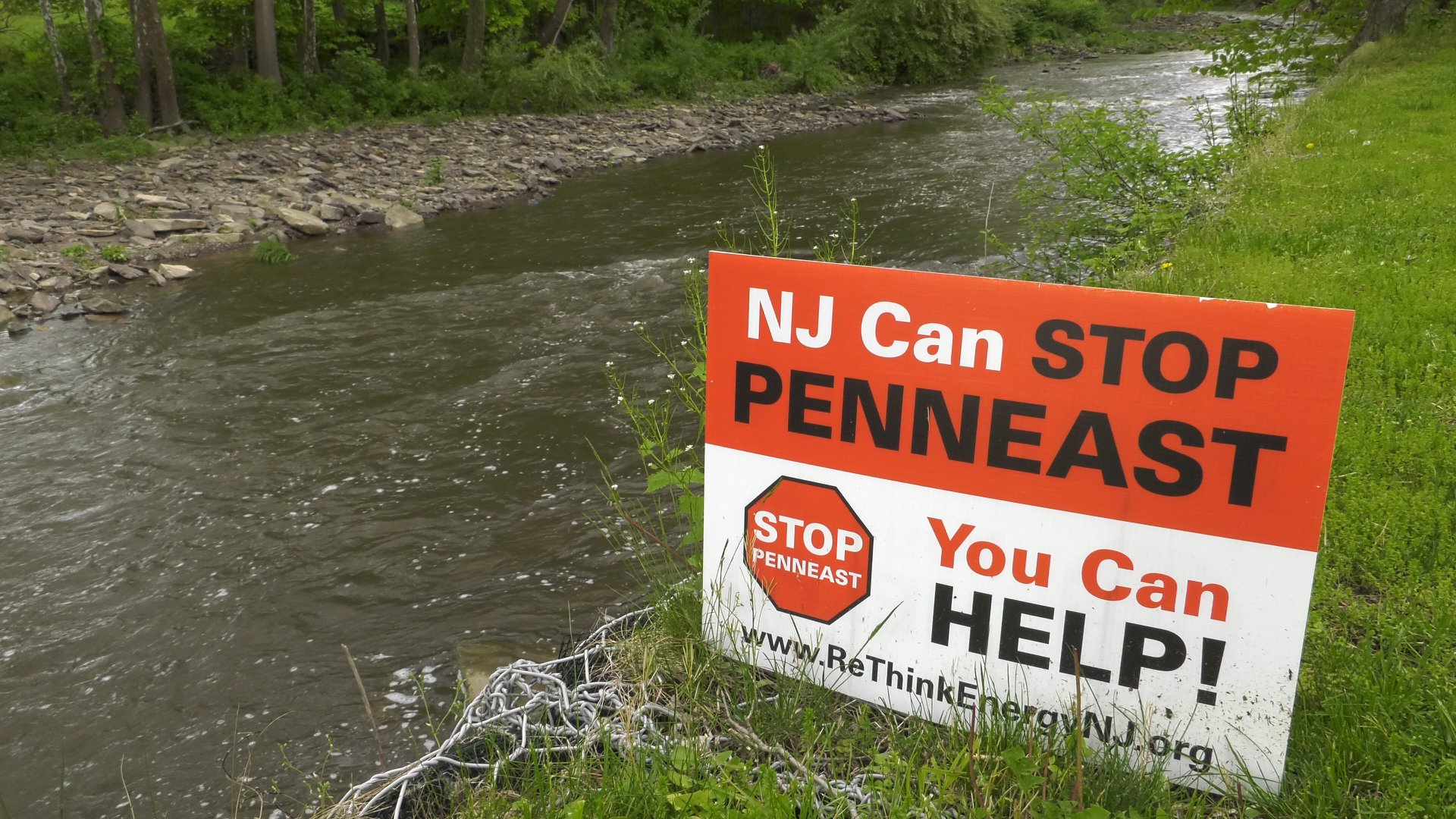Environmental and conservation groups in New Jersey that have opposed the PennEast project on the grounds that it does not serve a public need cheered the move announced today that FERC’s natural gas pipeline review process is not sufficient given current industry reality.
Far Hills, NJ (December 22, 2017) — Today FERC publicly acknowledged that its natural gas pipeline review process is not sufficient given current industry reality. At a public meeting, FERC announced that it will “review its policies on certification of gas pipeline proposals that come before it.” According to statements made by commissioners at today’s meeting, this review will include an examination of the criteria the commission uses to determine whether a pipeline is in the “public interest,” and what role precedent agreements play in that inquiry.
The Eastern Environmental Law Center (EELC) and the Columbia Environmental Law Clinic filed a lawsuit last month on behalf of New Jersey Conservation Foundation (NJ Conservation) contending that FERC is acting unconstitutionally in its pipeline certificate review process by not ensuring that the lands it authorizes pipeline companies to seize are being put to a public use.
“FERC acknowledged that its outdated certificate process is flawed, has failed to protect the public interest by not looking closely enough at the public need for proposed projects beyond precedent agreements and at environmental protection, and conceded that it needs to change. The lawsuit that Columbia Environmental Law Clinic and EELC filed on NJ Conservation’s behalf was designed to protect the public’s interest in ensuring that their lands are not seized based on this existing flawed FERC process,” said Susan Kraham, senior staff attorney, Columbia Environmental Law Clinic.
“This is a significant move by FERC, taking the first step forward toward remedying the public harms wrought by its failure to ensure that natural gas pipelines serve the public interest,” said Jennifer Danis, senior staff attorney, EELC.
During today’s FERC meeting, Commissioner Richard Glick stated that the Commission should “examine whether to more broadly consider evidence of need, including placing greater evidence on the other factors laid-out in FERC’s guiding policy document.” Glick further said that “the review should evaluate the current approach for evaluating the environmental impacts of a proposed gas pipeline, including potential greenhouse gas emissions.” Commissioner Cheryl LaFleur expressed similar comments. NJ Conservation’s lawsuit raises those very issues, and challenges FERC’s existing practices for issuing certificates. Those are the same practices that FERC has now said it must review and change.
In his first meeting as the new FERC Chairman, Commissioner McIntyre said, “Much has changed in the energy world since 1999, and it is incumbent upon us to take another look at the way in which we assess the value and the viability of our pipeline applications.”
“This has enormous implications for projects like PennEast, where energy experts and the NJ Division of Rate Counsel have challenged PennEast’s assertion that the project serves a public need,” said Tom Gilbert, campaign director, NJ Conservation. “We are extremely pleased that FERC is undertaking this critically important and long-awaited review to ensure that its national pipeline approval process places a priority on protecting the public’s interest.”
Environmental and conservation groups in New Jersey that have opposed the PennEast project on the grounds that it does not serve a public need cheered the move. “Now that it has conceded that its current process is flawed and outdated, FERC must wait to take any further action in the PennEast docket until it has developed a pipeline certificate process that actually protects the public interest,” said Jim Waltman, Executive Director, Stony Brook-Millstone Watershed Association.
Click-to-tweet: Groups cheer announcement: @FERC to revamp review process for proposed pipelines like PennEast. http://ow.ly/oARD30hnDDb @ConserveNJ @rethinkenergynj @eelc_org @theH2Oshed



